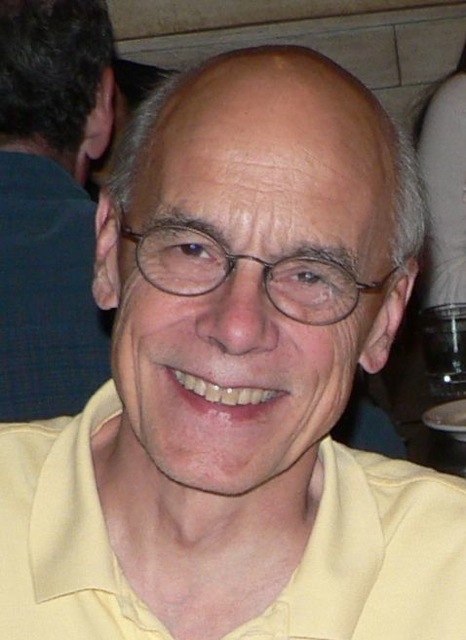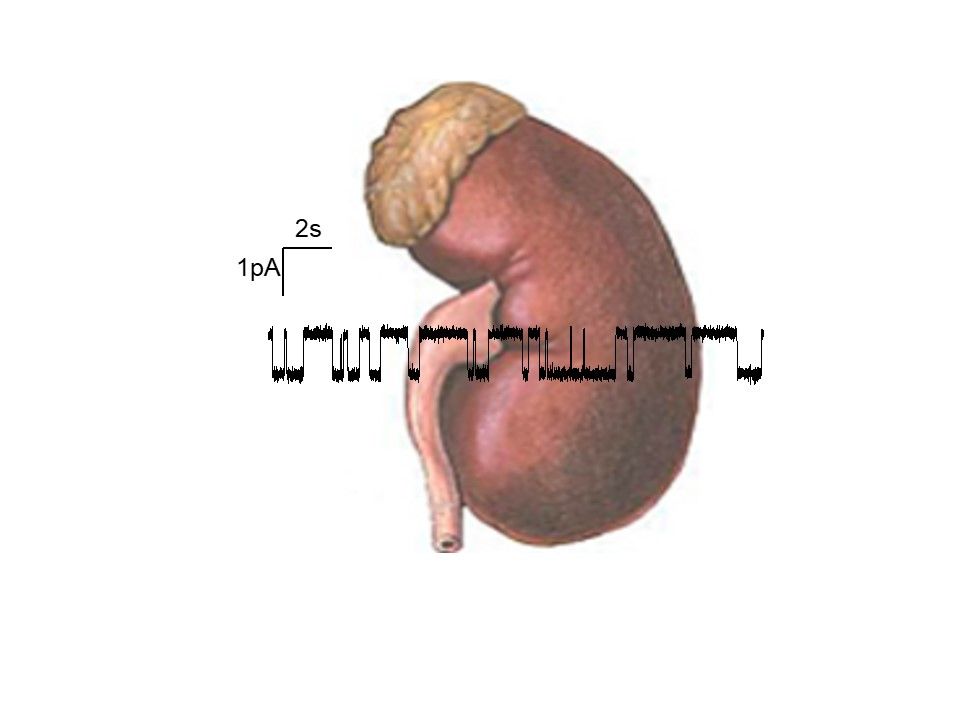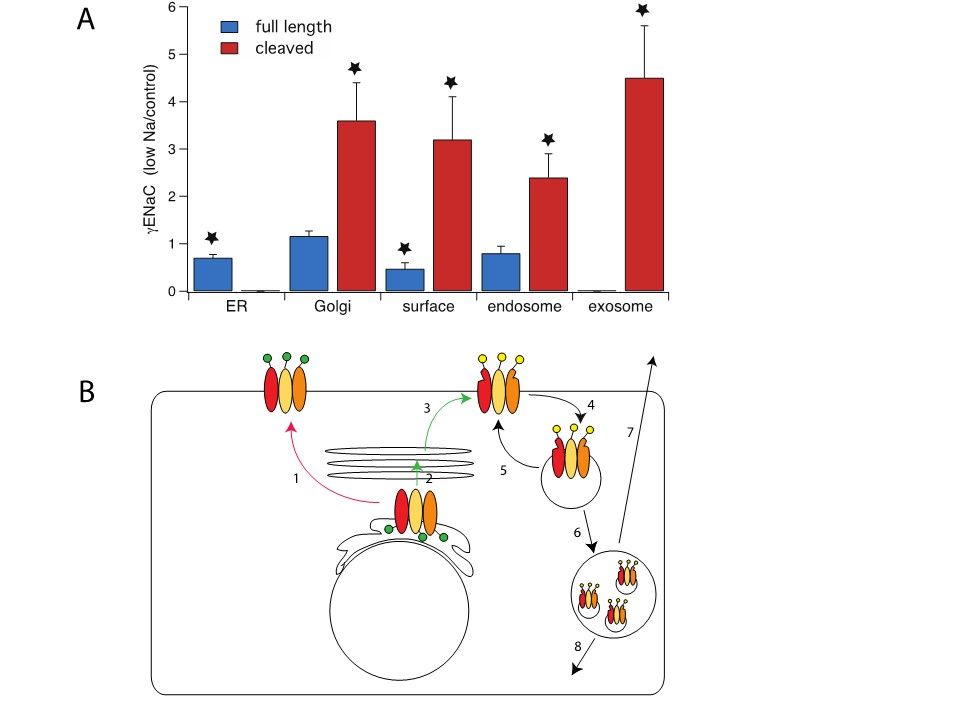
Research
The kidney has a remarkable ability to adjust the rate of excretion of ions and water to match dietary intake, assuring that the total amount of each solute in the body remains constant. The epithelial Na channel (ENaC) is a key component of this system, controlling the excretion of both Na+ and K+ ions. ENaC consists of a heterotrimer made of 3 homologous subunits. It forms a highly selective pore and is tightly regulated by the adrenal corticosteroid steroid aldosterone. We are particularly interested in the basis of ion selectivity and in the basis of regulation, particularly through modulation of protein trafficking to and from the apical plasma membrane. To address these questions, we use electrophysiology on native kidney cells and heterologous expression systems, Western blotting of kidney proteins, and immunocytochemistry.
Figure 1

Figure 2

Current Projects:
- Quantitation of ENaC protein in kidney cells.
- Kinetics of ENaC trafficking to and from the apical membrane.
- Role of ubiquitination in regulating protein levels.
- Compartments in which ENaC resides under different conditions.
Bio
Lawrence G. Palmer graduated from Swarthmore College (A.B.) and the University of Pennsylvania (Ph.D.). He received postdoctoral training at UCSF, Universität des Saarlandes and Columbia University. He joined the faculty at Cornell in 1980 and have remained here ever since.
Distinctions:
- Siegel Faculty Award
- Bardes Teaching Award (2017)
- First-year teaching Award (2006, 2008, 2011, 2013, 2015, 2016, 2020)
